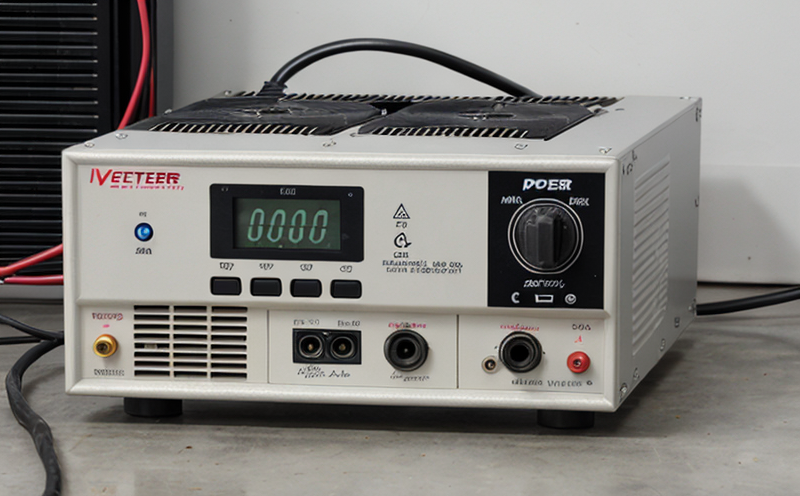IEC 62910 Communication Interface Testing of Smart Inverters
The IEC 62910 standard is pivotal in ensuring that communication interfaces within smart inverters meet the highest level of reliability and performance. This test focuses on verifying the robustness of data exchange between the inverter and other components within a photovoltaic (PV) system or broader energy management network.
During this testing, we assess various parameters to ensure compliance with IEC 62910, including but not limited to message integrity, error detection mechanisms, and secure data transmission protocols. This process is crucial for the seamless integration of smart inverters into modern power systems. By adhering strictly to these standards, manufacturers can guarantee that their products will perform reliably under a wide range of conditions.
The testing procedure involves simulating real-world operating scenarios to evaluate how effectively communication interfaces handle different types of data traffic and potential disruptions. This includes examining the inverters' ability to maintain stable connections during network congestion or power fluctuations, as well as their resilience against cybersecurity threats.
For R&D engineers, this service provides critical insights into optimizing design for future generations of smart inverters. Quality managers can rely on it to ensure product quality meets regulatory requirements and customer expectations. Compliance officers benefit from having a trusted partner who helps them navigate complex international standards.
In summary, IEC 62910 communication interface testing ensures that smart inverters operate efficiently within interconnected power networks while maintaining high levels of security and reliability. This comprehensive approach not only enhances the performance of individual devices but also contributes to creating more resilient and sustainable energy systems overall.
Quality and Reliability Assurance
The IEC 62910 standard sets stringent criteria for communication interfaces in smart inverters, ensuring they function reliably under various conditions. By adhering to these standards, manufacturers can demonstrate the robustness of their products' communication capabilities, which is essential for integrating into advanced energy management systems.
Our testing process involves simulating different scenarios such as network congestion, power interruptions, and cybersecurity attacks to assess how effectively inverters maintain data integrity. This ensures that even when faced with challenging situations, the inverter continues to perform optimally without compromising security or reliability.
The results from this rigorous testing provide valuable information for continuous improvement of existing products and development of new models. For quality managers, these tests serve as an important tool for maintaining high standards throughout production processes. Compliance officers can use them as evidence that they are meeting all necessary regulatory requirements.
Customer Impact and Satisfaction
By choosing IEC 62910 communication interface testing, customers receive products that not only comply with international standards but also offer enhanced performance and reliability. This translates into better customer satisfaction because users can trust their inverters to operate consistently and securely.
The secure transmission of data is particularly important for those involved in managing large-scale PV systems or integrating renewable energy sources into existing grids. With this level of assurance, customers know they are investing in dependable technology that will contribute positively to the overall efficiency and sustainability of their operations.
Furthermore, by participating in these tests, manufacturers demonstrate their commitment to excellence, which strengthens relationships with clients and stakeholders alike. It also helps build a reputation for reliability among industry peers and end-users.
Why Choose This Test
- Compliance with IEC 62910 ensures that communication interfaces operate reliably within photovoltaic systems.
- It enhances security against potential cyber threats, protecting sensitive data transmissions.
- The test provides valuable feedback for R&D teams aiming to improve future product designs.
- Achieves regulatory compliance and meets customer expectations regarding performance standards.





